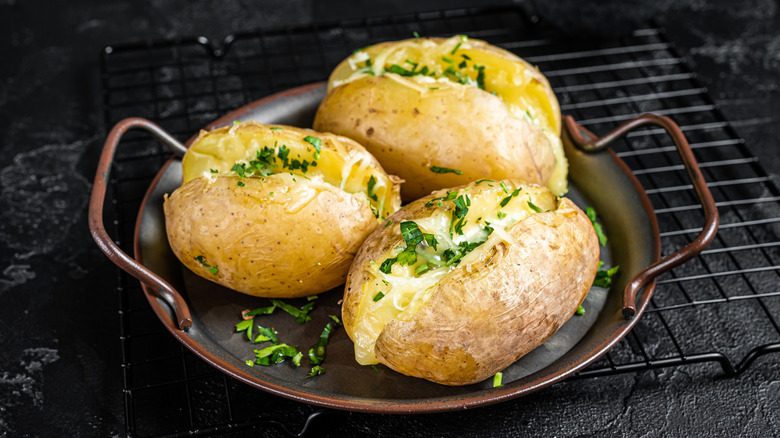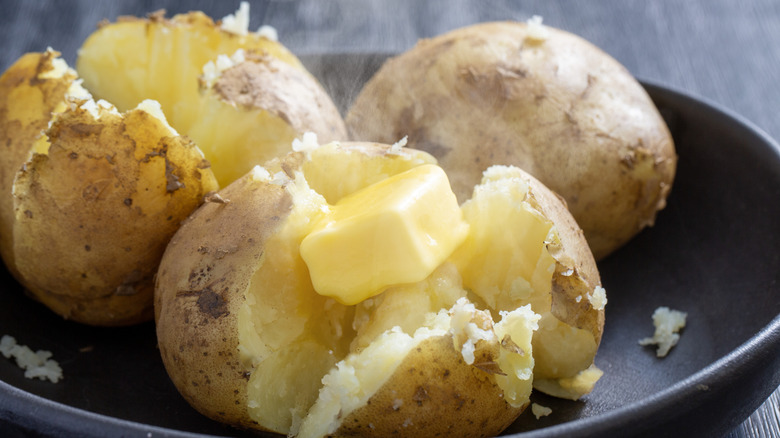Why Baked Potatoes Should Be Cut Open Right Out Of The Oven
Baked potatoes are one of the most comforting ways to prepare a spud, with a soft and fluffy inside, and a crispy skin. Plus you can load them with all your favorite things, from sour cream, cheese, and bacon, to handy canned foods that make great baked potato toppings. With so many different ways to make baked potatoes and serve them, there's a version suitable for every occasion. But as delicious as they can be, they can also quickly turn into a gummy mess. And it could be because you're resting your spud for too long after it's baked.
We've always been told to rest meat for a little while before slicing, so you might apply the same logic to your baked potato. But actually, in the spud world, the opposite is true. The moment your potato is out of the oven, you should carefully slice it open and squeeze gently (using a kitchen towel or glove) to let out the steam. If you leave your spud unsliced for too long, the steam from the middle will be absorbed into the flesh, leaving you with a rubbery, dense potato.
As a bonus, slicing and eating the spud quickly means the skin stays more crispy, as it can start to soften if the cooked potato is kept warm for too long. Plus, serving it pre-sliced will also allow your baked potato to cool just enough by the time you gather your toppings and dinner guests.
More ways to avoid a gummy baked potato
If you're somebody who already cuts their baked spud immediately after baking but is still left with a gummy mess, there are a few common mistakes you might be guilty of. Firstly, after you've washed your potato, make sure you dry it well. Leaving it wet is a bad idea because the moisture on the skin will seep into the potato, potentially making it gummy. Also, it means the skin will turn soggy instead of crispy.
If you have a cooking thermometer, your baked potato should be ready when it reaches around 205 degrees Fahrenheit. Be wary of going hotter than 212 degrees, as this is where you're in gummy territory. If you don't have a thermometer, just check that you can easily slide a fork, skewer, or sharp knife into its center.
A lot of us have been taught to bake our spuds in foil. Sure, wrapping them might mean they bake faster, but it also prevents moisture from escaping, trapping the water inside your potato. Once again, you're left with gummy flesh, and soggy skin. Even Dolly Parton skips this baked potato step. The tubers are made up of 80% water, so they really don't need anymore. Instead, bake them on a wire rack so that they can get hot air from all sides and cook evenly. Avoiding these mistakes will give you the best chance at a perfectly cooked, restaurant-worthy baked potato — and everyone deserves that.

